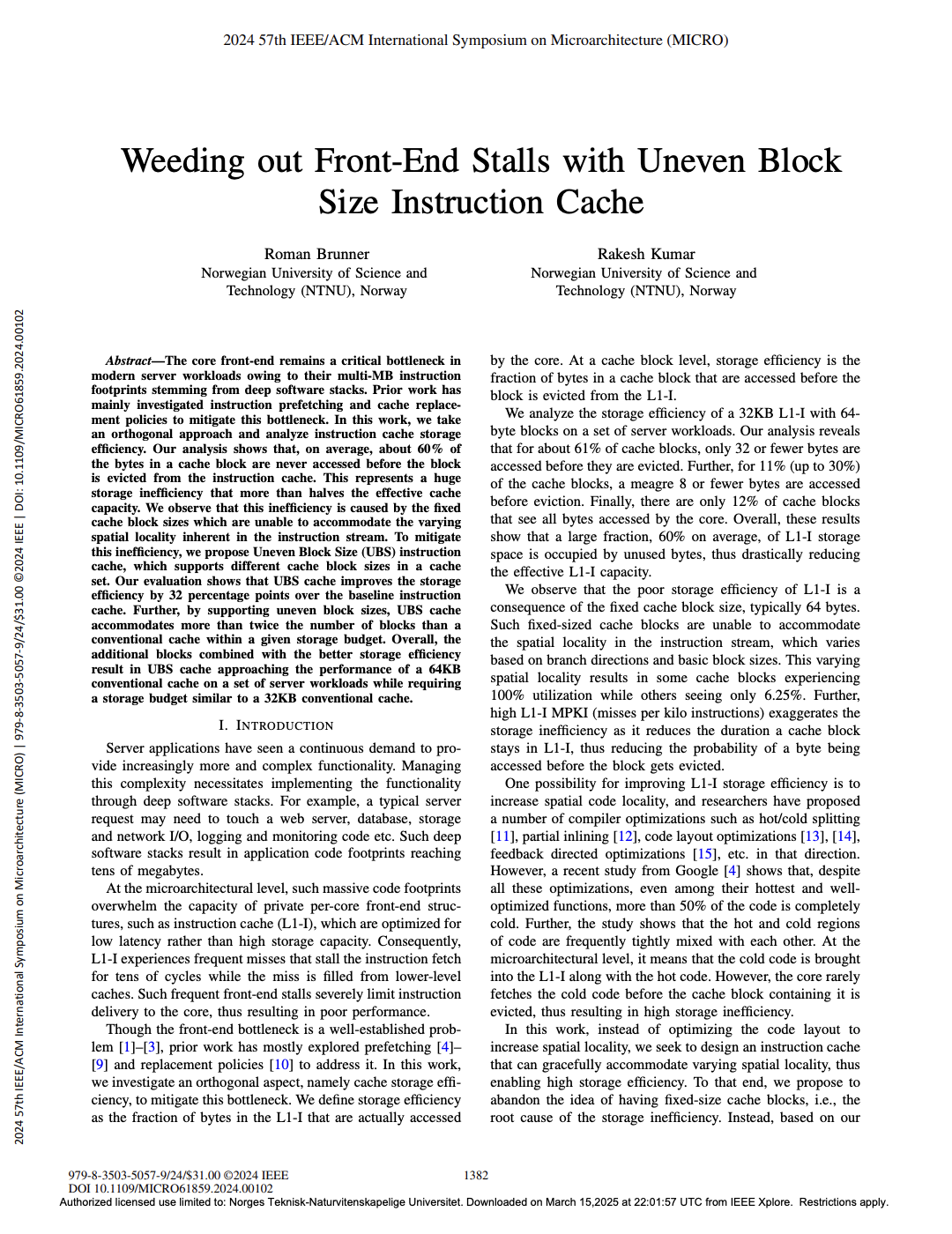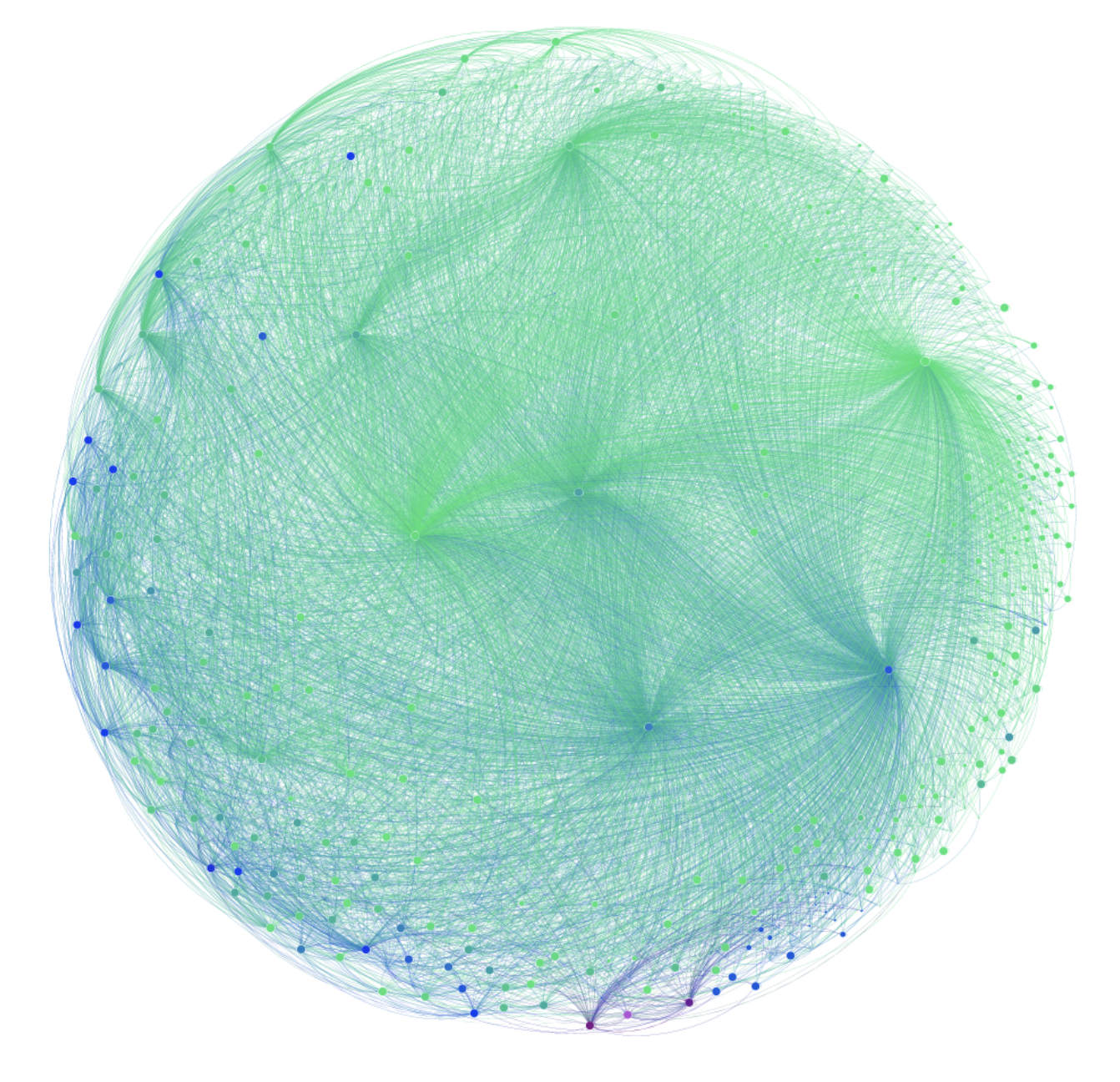Roman K. Brunner
PhD Candidate at CAL@NTNU
Master of Science ETH in Computer Science
Experienced Full Stack Engineer

Improving computational efficiency is essential for advancing any aspect of computing, ranging from cloud to embedded computing. My diverse academic interests bridge computer science, engineering, physics, and multilateral negotiations, fostering a unique interdisciplinary approach to technological challenges.
Research
As a PhD candidate at the Norwegian University for Science and Technology (NTNU), my research centers on microarchitectural and algorithmic specializations in processor frontends for cloud computing. These projects aim to enhance efficiency and reduce the environmental footprint of cloud services—an increasingly crucial challenge as global internet adoption continues.
Achieving a truly efficient cloud computing stack requires optimizations across multiple layers, including hardware, operating systems, compiler support, and workload management. I’m particularly passionate about co-optimizing these elements to drive meaningful advancements in cloud infrastructure.
Scaling up led to high-performance cores, but progress in this direction has significantly slowed due to physical constraints like the power and memory wall. Scaling out gave rise to cloud computing, yet it too faces fundamental limits, as communication speed is ultimately bound by the speed of light. To address the challenges of modern hardware design, we focus on what we call scaling in—pushing the theoretical limits of how data is moved, stored, and processed. By rethinking microarchitecture and algorithmic approaches for diverse workloads, we enable cores to operate ever closer to the fundamental boundaries set by information theory.
Engineering
A good engineer combines deep theoretical knowledge with practical experience, ensuring that solutions are both innovative and feasible. They have a broad perspective, understanding not only their immediate technical focus but also how their work interfaces with other systems above and beyond. A solid foundation in theoretical fundamentals allows them to make informed decisions, while hands-on experience bridges the gap between abstract principles and real-world application.
Besides its technical expertise, a strong engineer is also an effective communicator, able to engage with diverse stakeholders and clearly explain complex concepts. They recognize the practical constraints of their work—balancing innovation with financial, time, and resource limitations. Most importantly, they maintain integrity and responsibility, being honest about what is possible and ensuring that their work meets the highest standards, as poor engineering decisions can have serious, at times even life-threatening, consequences.
Throughout my career, I’ve been fortunate to work alongside highly skilled individuals, learning from their expertise and continuously refining my abilities as an engineer. Taking on projects of increasing complexity and responsibility has challenged me, pushed me to grow, and given me the opportunity to prove myself in demanding environments.
Negotiation
Beyond my technical work, I have a strong interest in politics and international negotiations. From 2020 to 2024, I served on the board of the Institute for Global Negotiations (IGN), advocating for the importance of negotiation skills, especially among engineers.
I firmly believe that every engineer should have foundational negotiation training. Not only is it valuable for personal situations like salary discussions, but it also enhances an engineer’s professional effectiveness. Engineers frequently collaborate with diverse stakeholders, and strong negotiation skills help bridge technical and strategic decision-making. If you’re looking to develop these skills, I highly recommend exploring negotiation training opportunities at your host organization or participating in the Global Negotiation Conference, a summer school hosted by IGN. If those aren’t an option, feel free to reach out to me or the team at IGN for other opportunities.
Interests
- Computer Architecture
- Workload Characterization
- Negotiations
- Mountaineering
Selected Publications
-
 Weeding out Frontend Stalls with Uneven Block Size Instruction CacheIn 57th IEEE/ACM International Symposium on Microarchitecture, 2024
Weeding out Frontend Stalls with Uneven Block Size Instruction CacheIn 57th IEEE/ACM International Symposium on Microarchitecture, 2024 -

